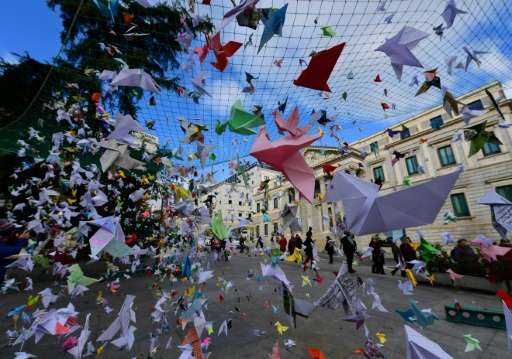Green groups pressure Spain over 'at risk' wetlands

Environmentalists piled pressure on Spain Wednesday over its sprawling Donana wetlands, a UNESCO World Heritage site they believe is at risk and could be put on the UN body's list of endangered habitats.
Greenpeace activists blocked natural gas operations near the wetland reserves on Spain's southern coast—home to more than 4,000 species including the endangered Iberian lynx.
And WWF made yet another appeal for Donana, just a day before Spain is due to hand over a report to UNESCO on its management of the wetlands at the request of the Paris-based organisation.
"Donana is in very serious danger," Juan Carlos del Olmo, head of WWF Spain, told AFP.
"We don't want it to be put on the list of endangered sites, but soon there won't be any other option."
The government has defended itself by saying the wetlands are well protected, and are even included in the International Union for the Conservation of Nature's green list, which recognises good management of natural areas.
Environmental groups don't dispute that, but argue that activities surrounding the huge area of lagoons, woodlands and pristine beaches are a threat.
WWF says the wetlands now only receive a fifth of the water they need, in part due to illegal farming nearby.
They believe the site also faces further damage with nearby mining, gas and dredging activities.
Utility company Gas Natural Fenosa, for one, has been given permission to use depleted natural gas reservoirs as underground storage sites for later consumption, which involves building pipelines in the fragile area.
Angry Greenpeace activists marched on the site Tuesday, blocking the entrance and departure of lorries for further pipeline construction.
They were still there on Wednesday afternoon, a spokesman said.
Gas Natural Fenosa condemned the blockage, saying it had "worked near Donana for close to 30 years with the utmost care for the surroundings."
Thirsty Donana
For WWF, though, water is the most pressing problem, since it is being sucked up by up to 2,000 illegal wells and 3,000 hectares of illicit strawberry farms nearby.
Del Olmo said that authorities had started addressing the issue, notifying illegal farms that they will have to close down.
But he added that the planned dredging of the nearby Guadalquivir river to allow cargo and cruise ships to get to Sevilla's port upstream was still a problem, as it will disturb the ecosystem and attract more salt water into the wetlands.
"The Spanish government continues with its idea of dredging the river," said del Olmo.
Last year, a UNESCO mission to Donana concluded this was the most pressing issue.
"If the state party fails to urgently make a permanent and unequivocal commitment to abandon the plan to deepen the Guadalquivir River... it should lead to the inscription of this property on the List of World Heritage in Danger," it recommended in a report.
© 2016 AFP





















